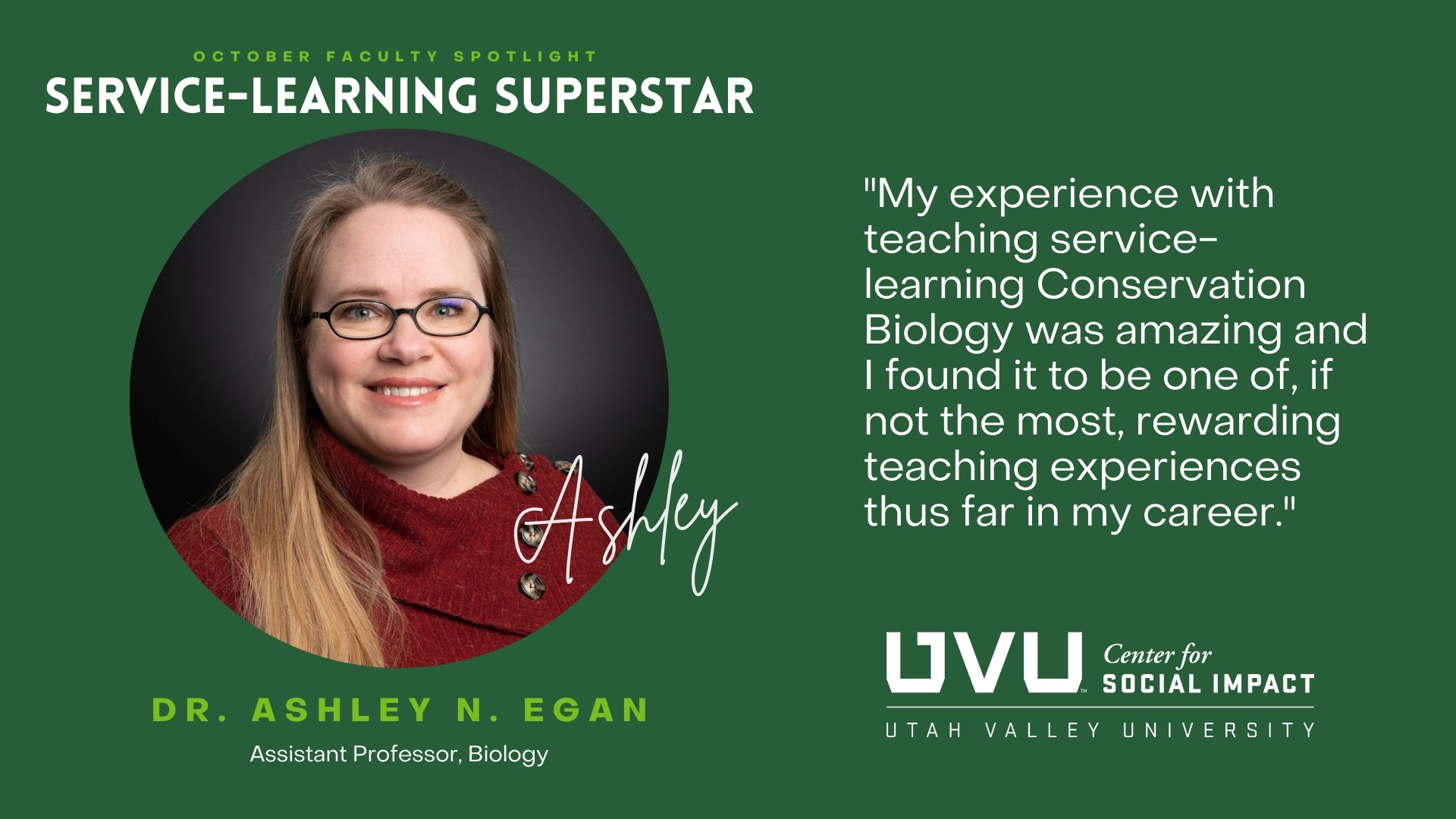
Our first recipient of this award is Dr. Ashley N. Egan, Assistant Professor of Biology. Dr. Egan has designed powerful service-learning experiences for her students that have had meaningful impact on their learning and our community. Dr. Egan shared the following recent service-learning experience with us:
“During Spring 2021, I taught BIOL 3800 Conservation Biology as service-learning. We worked with the City of Vineyard’s landscape planner to use only native plants that were representative of the area to work with for the five major greenspaces.
“Working in groups, the students met each week over teams to learn about Utah native plants and choose 25 plants for their ecozone. The students chose their plants with form and function in mind, for example, with the purpose of providing shade, color in the fall, flowers in the spring or fall, etc. They honed their plant lists and created a plant palette with photos and information for each species and presented as a group to the city landscape planner.
“My experience this spring semester with teaching SL Conservation Biology was amazing and I found it to be one of, if not the most, rewarding teaching experiences thus far in my career. Personal reflection through written or verbal accounts is an excellent metacognitive means for connecting knowledge with life and is a pivotal aspect of service-learning pedagogy. I saw leaps and bounds in student learning of both course content material, connection to other aspects of life, and even recognition of learning of transitional skillsets. One student wrote in an anonymous survey: ‘I felt that this reflection activity was an effective method for me to connect my service activity to the academic content of the class.’
“I have found service-learning to be very impactful on my students and fulfilling to see them learn at a higher level through reflection, selflessness, and community engagement by applying course concepts to address real-world community needs.”